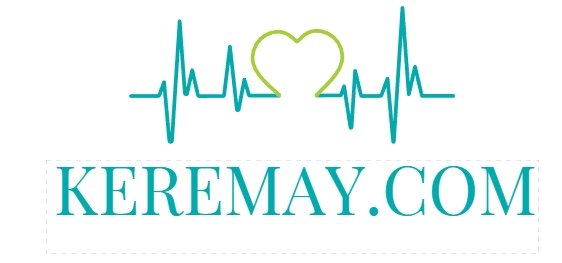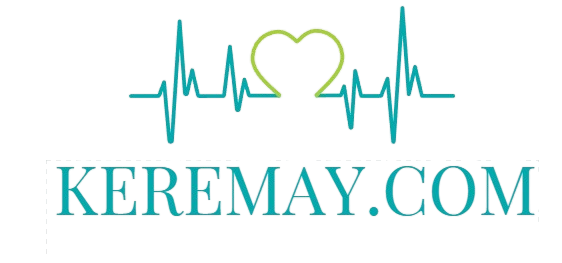From ancient civilizations to modern-day medicine, having immunity against diseases has been a key factor in maintaining the health and wellbeing of individuals and societies alike. Vaccines and immunizations are one of the most powerful tools available to prevent the spread of disease and keep us safe and healthy. This article explores the nuances of vaccines and immunizations and their role in safeguarding our health and preventing the onset of serious illnesses.
1. Protecting Yourself and Loved Ones with Vaccines
Vaccines are a preventative measure that we can take to protect our safety and the safety of those around us. Vaccines help people of all ages build immunity against certain diseases, lessening the severity and risk of life-threatening illnesses. There are several types of vaccines available to individuals depending on age, health history, and lifestyle:
- Flu shots
- Polio
- Hepatitis
- Chickenpox
- Measles, mumps, and rubella
It is important to recognize the importance of vaccines and how they can be used to protect yourself and your loved ones. Vaccines stimulate your body’s natural defense system, preparing it to fight infection if you are exposed to the disease. Additionally, by getting vaccinated, you are also helping to protect the safety of your community by stopping the spread of disease.
When considering getting vaccinated, it’s important to check with your health care provider and make sure you know which vaccinations you and your loved ones may need. It may be recommended that you receive booster shots depending on the vaccine and the age group. In addition, your provider may recommend preventive doses of vaccines to avoid any potential health risks to you and your family.
The benefits of prevention through vaccination should not be underestimated. Taking the time to get vaccinated can help protect yourself and your family against harmful and possibly life-threatening illnesses. Vaccines provide the best protection from serious diseases and can also save time, money, and distress.
2. Vaccines and Immunizations: The Basics
Vaccines and immunizations provide us with a key line of defense against infectious diseases. By receiving vaccines and immunizations, individuals and the community at large can stay safe and healthy. Here, we will discuss the basics of vaccines and immunizations.
Vaccines and immunizations work to create an immunity by stimulating the body’s natural immune system to protect against viruses and bacteria that cause illnesses. When the body is exposed to a virus or bacteria, its antibodies start to create a memory of it. If, in the future, the body is exposed to the same virus or bacteria, the antibodies will be able to recognize it and protect the body from it. This is the immunity that vaccines and immunizations aim to create.
Individuals may need to receive certain immunizations before going to school, joining the military, or traveling outside of the US. The Centers for Disease Control (CDC) recommends that people receive vaccines and immunizations that protect against:
- Chickenpox
- Diphtheria
- Hepatitis A and B
- Measles
- Meningitis
- Pneumococcal
- Tetanus and Whooping cough
Furthermore, pregnant women should get the pertussis vaccine, also known as the Tdap vaccination, which protects against tetanus, diphtheria, and pertussis.
Vaccines and immunizations are typically administered as a shot, but some of them can be taken orally too. Despite their widespread acceptance, there are some individuals who are not recommended to receive vaccines and immunizations due to immune diseases, allergies, and other health conditions. Healthcare providers can always provide guidance to individuals in regard to the risks and benefits of receiving a vaccine or immunization.
3. Benefits of Vaccination: Safeguarding your Health
Vaccines are a pillar of modern medicine that offer tremendous protection against a range of infectious diseases. They are important for safeguarding the health of individuals and communities alike. Here are three main benefits of vaccination that every responsible person should be aware of:
Protection Against Viral Illnesses: Vaccines work by introducing a very weakened form of a virus or other infectious agent into your body, preparing it to fight the disease if it’s ever present. This means that the person is then protected from the effects of the virus if they are exposed to it. Vaccines are very effective at preventing illnesses like influenza, rubella, measles, mumps, and hepatitis A & B.
Preventing Outbreaks: Vaccinations are especially useful in protecting large communities from the spread of an infectious disease. When more people are vaccinated, the chances of an epidemic occurring are greatly reduced. This allows health authorities to keep a close watch on a disease’s spread and better respond to potential outbreaks.
Reducing Viral Rhythm: Vaccinations are also an important way to reduce the rate of transmission of a virus between communities. Vaccines that prevent diseases like rubella, mumps, and measles, are especially effective in this respect since they reduce the number of people that can spread the virus.
- Vaccines work by introducing a very weakened form of a virus into your body, which can effectively protect you if you are exposed to it.
- The more people vaccinated, the lower the chances of an epidemic or outbreak occurring.
- Vaccines are very effective in reducing the rate of transmission of a virus between communities.
Getting vaccinated depends on a number of factors, so it’s important to consult with your doctor to determine what kinds of vaccinations are best for you. Ultimately, making sure you and your family are safeguarding your health through vaccinations is key to staying healthy and safe in the long term.
4. Making Vaccines Accessible for All
Vaccines offer unparalleled protection from serious infections. To ensure everyone has access to such crucial preventative medicine, the healthcare system must be improved. The goal is to develop suitable measures to make vaccines available for all communities, even in the most far away or vulnerable places. Here are a few steps we can explore to achieve this:
- Using Technology to Reach More People
Vaccine tech is becoming increasingly advanced. We can use existing systems to expand our reach and identify those who qualify for certain vaccines and find the best care for them. Electronic record systems, mobile apps, and real-time surveys are a few efficient methods to identify those who might be in need of a vaccine. - Improving Education and Accessibility
People should be knowledgeable about the risks that lack of vaccination can bring. Through social media awareness campaigns, we can encourage everyone to get vaccinated and about the benefits of doing so. It is also important to facilitate access to healthcare facilities and make sure they are adequately staffed so that people are able to get their vaccines in a timely manner. - Working With Local Governments
Governments should allocate funds to immunization efforts and create local initiatives that help make vaccines more affordable and accessible. It should also be mandated that all healthcare providers are well-equipped and informed about the importance of vaccinating people, not just those who can pay.
The right vaccines can save the lives of countless individuals. They will also bring economic gains for communities, governments, and nations. By working together, we can strive to make vaccines accessible to all, no matter their background or circumstances.
Immunizations and vaccines are crucial tools used in health prevention and care. By staying informed and educated on what vaccinations are available and what immunizations are right for you and your family, you can reduce the likelihood of being affected by dangerous diseases. In doing so, you’ll also be safeguarding your health and the health of those around you. That’s the power of prevention!



